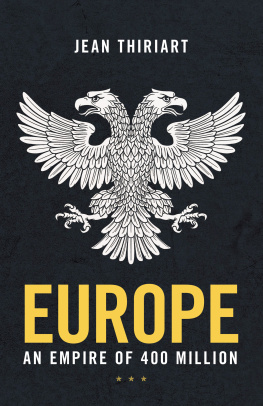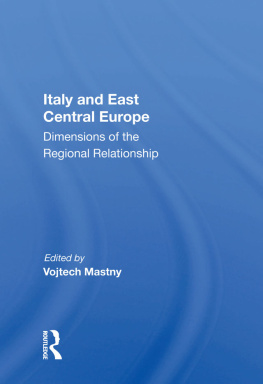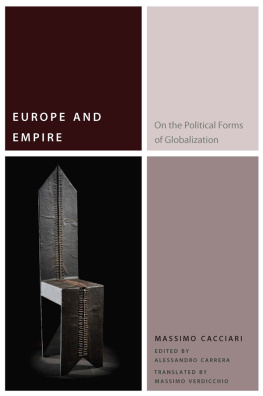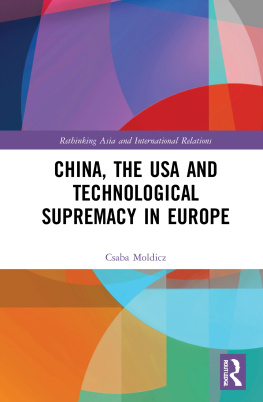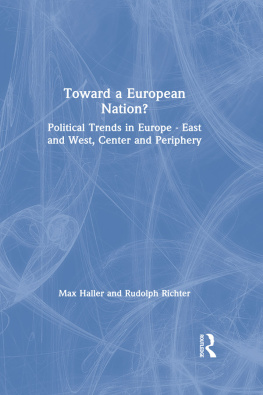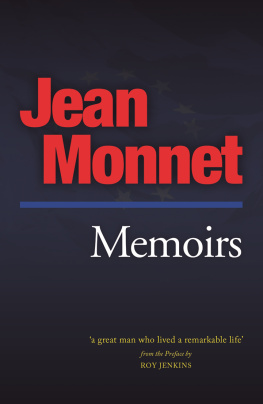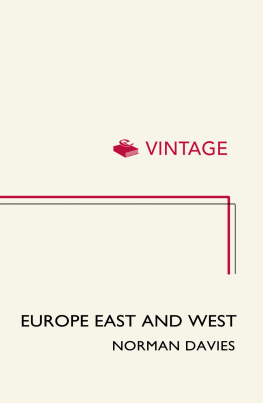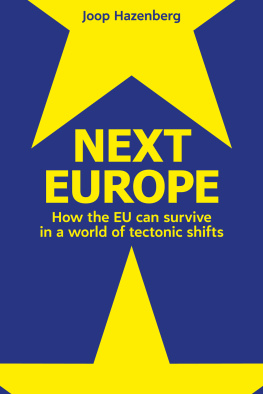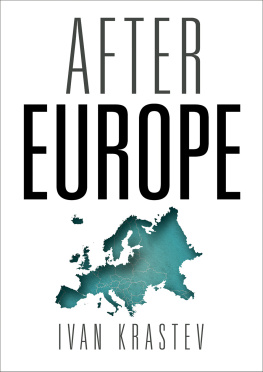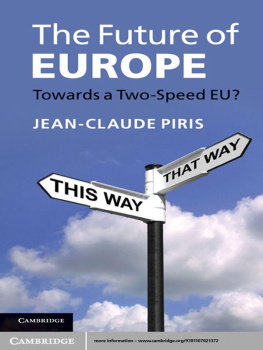
Arktos
London 2021

Copyright 2021 by Arktos Media Ltd.
All rights reserved. No part of this book may be reproduced or utilised in any form or by any means (whether electronic or mechanical), including photocopying, recording or by any information storage and retrieval system, without permission in writing from the publisher.
Arktos.com | Facebook | Twitter | Instagram | Gab.ai | Minds.com | YouTube
ISBN
978-1-914208-03-4 (Softcover)
978-1-914208-04-1 (Hardback)
978-1-914208-05-8 (Ebook)
Translation
Alexander Jacob
Editing
Constantin von Hoffmeister
Cover and Layout
Tor Westman
Introduction by Alexander Jacob
J ean-Franois Thiriart (192292) was, without doubt, one of the most significant pioneers of the project of a united Europe, which has been espoused by several contemporary European geopolitical thinkers, such as Robert Steuckers, Claudio Mutti and Aleksandr Dugin. Rather like the American political thinker Francis Parker Yockey (191760) before him, Thiriart was one of the first to pivot his entire political project on the precondition of a liberation of Europe from the control of America, which he considered the principal enemy of Europe. And his major book on a united, or unitarian, Europe, published in 1964, is an important manual for all European national revolutionaries who wish to continue to fight for the independence of Europewhich remains to this day a vassal state of America.
Thiriart was born in Brussels and participated in socialist movements in Belgium, such as the Jeune Garde Socialiste and the Union Socialiste Anti-Fasciste . During the Second World War, Thiriart joined the Fichte Bund (part of the Hamburg National-Bolshevik movement of the 1920s) and then the Amis du Grand Reich Allemand , an association composed of elements of the extreme left in Wallonia who were favorable to European collaboration with the Reich. Thiriarts association with this group led to imprisonment in 1944 and a deprivation of civic rights in Belgium until 1959.
Thiriart re-emerged in 1960, during the decolonization of the Congo, by participating in the foundation of the Comit dAction and the Dfense des Belges dAfrique, which later became the Mouvement dAction Civique .
On March 4th 1962, a meeting was organised in Venice whose participants included, besides Thiriart, who represented the MAC and Belgium, the Italian Social Movement from Italy, the Socialist Reich Party from Germany, and the Union Movement of Oswald Mosley from Great Britain. In a common declaration, these organizations proclaimed that they wanted to found a National European Party, centred on the idea of European unity, which does not accept satellitisation of Western Europe by the USA and does not reject reunification with the territories of the east, from Poland to Bulgaria, through Hungary.
However, the narrow nationalism of the Italians and Germans rapidly broke up the project of a European National Party. The failure of this attempt at a party organization coincided with the defeat of the OAS ( Organisation Arme Secrte ), which fought for French Algeria during the Algerian War and which Thiriart sympathised with. Thiriart concluded that the only solution was the creation of a Revolutionary European Party, in a common front with parties or countries opposed to the order of Yalta. The MAC was thus transformed in January 1963 into Jeune Europe , a European organization that had members in Austria, Germany, Spain, France, Great Britain, Italy, the Netherlands, Portugal, and Switzerland. The new movement was rather different from the customary nationalist movements in Europe. It was very strongly structured, insisted on ideological formation in true schools of leadership and it tried to implement a central syndicate, the Syndicat Communautaire Europen . While Jeune Europe was banned in France on account of its ties to the OAS, it succeeded in recruiting many members in Italy.
The journals of the organisation, first Jeune Europe (196366), then La Nation Europenne (196668), also had a considerable audience. There were Italian counterparts, Europa Combattente and La Nazione Europea (which was edited by Claudio Mutti, the present editor of the journal Eurasia ), as well. General Pern, in exile in Madrid, declared I regularly read La Nation Europenne and I entirely share its ideas. Not only as regards Europe but also the world.
Apart from numerous articles related to his Europeanist ideas, Thiriart had, already in 1961, written a Manifeste la nation europene, in which he proclaimed his concept of a Communitarian Europe united against the American and Soviet blocs. This manifesto was followed by the present work, Un empire de 400 million dhommes , published in 1964, and a further booklet entitled La Grande Nation: LEurope unitaire de Brest Bucarest, published in 1965.
Jeune Europe also aimed at forming European Revolutionary Brigades to start the armed struggle against the American occupier, and searched for external support in Europe as well as among Third World revolutionaries. Thus contacts were made with Yugoslavia and Romania, Communist China, as well as Iraq, Egypt, and the Palestinian Resistance.
In April 1968, the publisher of the journal of Jeune Europe , La Nation Europene, Grard Bordes, went to Algeria with a Mmorandum lintention du gouvernement de la Rpublique Algrienne, signed by himself and Thiriart, which proposed that European revolutionary patriots support the formation of special fighters for the future struggle against Israel; technical training of the future action aimed at a struggle against the Americans in Europe; building of an anti-American and anti-Zionist information service for a simultaneous utilization in the Arabian countries and in Europe. However, this Algerian effort proved to be unsuccessful. Nonetheless, the military support of his militants in the Anti-Zionist combat is incontestable since the first European who fell in the struggle against Zionism, in June 1968, Roger Coudroy, was a member of Jeune Europe .
In autumn 1968, Thiriart travelled to the Middle East at the invitation of the governments of Iraq and Egypt and the Baath Party. He met Nasser during this visit but, under Soviet pressure, the Iraqi government refused to support the idea of a cooperation between Arab nationalists, including the nascent Palestinian ones, and Thiriarts European Revolutionary Brigades.
The lack of the desired financial and material aid to Jeune Europe and its failure to find a firm base for its pan-European operationsas Piedmont had been for the unification of Italy in the middle of the 19th centurywas a severe blow to Thiriarts revolutionary ambitions. Further, the fact that, after the crises of decolonisation, Europe benefited from a decade of economic prosperity reduced the prospects of any revolutionary movement. In 1969, disappointed by the relative failure of his movement and the weakness of his external support, Thiriart renounced militant combat.
In the early 1980s, Thiriart worked on a book that was never finished: The Euro-Soviet Empire From Vladivostok to Dublin . As the title of this book shows, Thiriarts view of the Soviet Union had completely changed. Discarding the old motto Neither Washington, nor Moscow, Thiriart assumed a new slogan: With Moscow, against Washington. Thiriart had already expressed his satisfaction with the Soviet military intervention in Prague, denouncing the Zionist plots in the so called Prague Spring, in an article entitled Prague, lURSS et lEurope , where he maintained that
Next page
